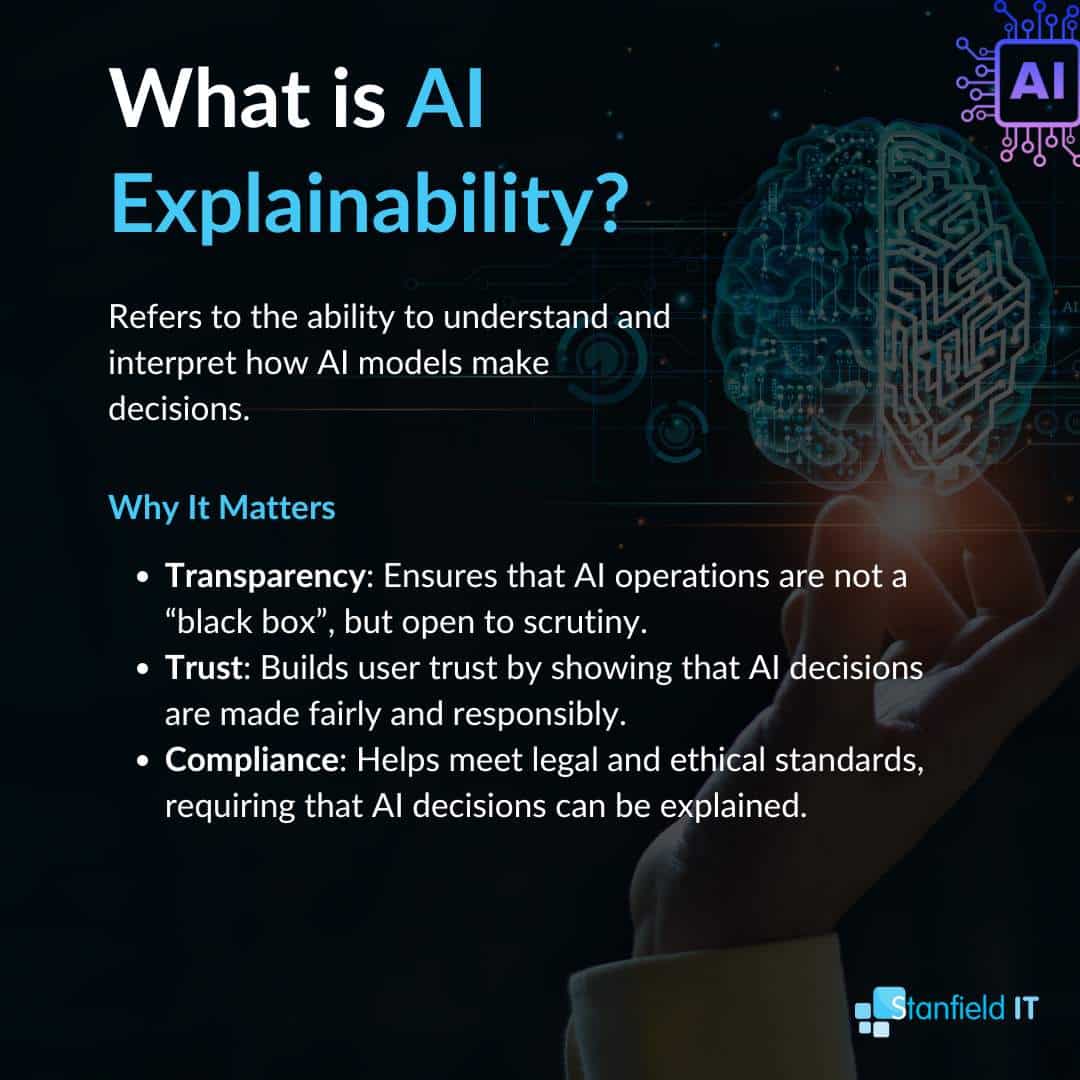These days, everyone is talking about AI. But not many are talking about ISO/IEC 42001.
AI might seem like a bit of a buzzword. And in many cases it is. One Harvard Business School professor found that 95% of products fail. We’ll likely see the same trend with AI startups.
That said, AI is still a major consideration for most businesses.
The rapid development of AI technologies in recent years will have many business leaders considering its use cases and potential strategic value.
This has led business leaders to consider how they might manage the use of AI in their organisations.
In fact, 90% of companies think they need to do something to govern AI, yet only 6% have AI policies.
This is where ISO 42001 comes in, which is exactly what we’ll talk about here.
Key Takeaways
- ISO 42001 provides organisations with a structured approach to managing AI systems throughout their lifecycle, focusing on ethical use, transparency, and continuous improvement. The standard is crucial for any organisation looking to implement AI responsibly.
- The standard is relevant to organisations of all sizes across various industries. It serves as a guide for entities involved in developing, providing, or using AI technologies, ensuring that these tools are used securely and responsibly.
- ISO 42001 not only aids in identifying and managing risks associated with AI but also highlights potential opportunities.
- Implementing ISO 42001 can significantly enhance an organisation’s reputation by demonstrating a commitment to responsible AI practices. This adherence builds trust among users, customers, and stakeholders, aligning with ethical standards and regulatory compliance.
What is ISO 42001?
ISO 42001 is a global standard that provides organisations with a framework for establishing and managing an effective AI management system.
It outlines the key requirements for implementing, maintaining, and continuously improving AI systems within a company.
The standard is designed entities at all stages of the AI lifecycle, from development to deployment, ensuring the ethical and responsible use of AI systems.
One of the key aspects of ISO 42001 is its focus on addressing the unique challenges posed by AI, such as ensuring ethical behaviour, maintaining transparency, and facilitating continuous learning. Adhering to the standard allows organisations to navigate these complexities and build trust in their AI systems.
For organisations, ISO 42001 sets out a structured approach to managing the risks and opportunities associated with AI. It helps companies strike the right balance between fostering innovation and maintaining proper governance, ensuring that AI systems are developed and used responsibly.
Who is ISO 42001 For?
ISO 42001 is for organisations of all sizes that are involved in developing, providing, or using AI-based products or services.
The standard is applicable across all industries and sectors as a guide for organisations seeking effective management of AI systems.
What is the Purpose of ISO 42001?
ISO 42001 provides organisations with a framework to contribute to the AI landscape across various sectors and industries.
As AI becomes a significant economic driver in the future, the standard will likely help organisations responsibly execute their roles in utilising, developing, monitoring, and providing products and services that incorporate AI.
ISO 42001 targets the security of AI systems, addressing the additional risks that may arise from their implementation. The standard focuses on several key features of AI that require safeguards:
1. Autonomous Decision-Making
When AI-driven decision-making lacks transparency and explainability, ISO 42001 provides guidance on specialised administration and oversight beyond conventional IT systems.

2. Data Analysis, Insight, and Machine Learning (ML)
The use of AI, instead of human-coded logic, changes the way systems are developed. ISO 42001 helps organisations implement protective measures to ensure the responsible development and use of these AI-powered systems.
3. Ongoing Learning
AI systems that engage in continuous learning can change their behaviour over time. ISEO 42001 offers considerations to ensure the responsible use of these evolving systems, addressing the unique challenges they represent.
Don't miss out on our latest.
Join our subscribers and receive expert insights on cyber security and IT. Sign up now!
Benefits of Implementing ISO 42001
Implementing ISO 42001 offers several benefits to organisations:
Responsible AI
The standard ensures the ethical and responsible use of AI by establishing guidelines and principles for its implementation.
It includes requirements and recommendations for organisations to consider the societal impacts of their AI applications, helping them align with ethical standards and values.
Implementing ISO 42001 helps build trust with stakeholders and address concerns related to the ethical implications of AI technologies.
Reputation Management
Adopting ISO 42001 enhances trust in AI applications and helps your organisation build and maintain a positive reputation.
By using the standard, companies demonstrate their commitment to responsible AI practices, which can enhance trust among users, customers, and the general public.
Compliance with recognised standards for AI implementation contributes to a positive image and helps mitigate potential reputational risks associated with AI misuse.
AI Governance
ISO 42001 can help your organisation align its AI practices with relevant laws and regulations.
The standard provides a structured framework that helps you avoid legal pitfalls and ensure that AI systems operate within the boundaries of established legal frameworks.
Compliance with the standard serves as evidence of your organisation’s commitment to meeting legal requirements in the field of AI.
Practical Guidance
The standard offers practical guidance on managing risks associated with AI implementation. It helps organisations identify and assess potential risks related to their AI applications and provides guidelines for effective risk management strategies.
By addressing AI-specific risks in a systematic and structured manner, organisations can enhance the robustness and reliability of their AI systems.
Identifying Opportunities
With risk comes opportunity.
ISO 42001 encourages organisations to explore and implement AI technologies within defined boundaries.
The standard helps organisations identify and leverage opportunities for improvement and advancement in their AI applications, fostering innovation within a structured framework.
Conclusion
ISO provides your business with a framework for managing AI systems responsibly and effectively.
By aligning with the standard, you can navigate the complexities of AI tech, mitigate risks, and ensure secure and ethical implementation of AI technologies.
As AI continues to be a significant economic driver, ISO 42001 will play a crucial role in guiding businesses towards responsible development, deployment, and governance of AI systems.
More Like This
Windows 10 End of Life (EOL) and What it Means
Microsoft has announced that October 14, 2025, will be the End of Life (EOL) date for Windows 10. Windows 10 EOL is set to affect all versions of Windows 10, including Home, Pro, Education, and Enterprise. Research from Lansweeper indicates that only 23.1% of...
ISO 27001 Certification in Australia: A Comprehensive Guide
Business data is like a treasure for cyber criminals. In fact, buried in almost every organisation's information assets are details worthy of holding ransom. So, how do you protect it? With ISO 27001 certification. ISO 270001 is more than just a standard industry...
Cyber Hygiene For Business: What You Need To Know
Implementing cyber hygiene practices is one of the most effective ways to protect your business from cybersecurity risks. As a business owner, the security of your company's data is paramount. With the prevalence of cyber-attacks in the modern world, it’s increasingly...



